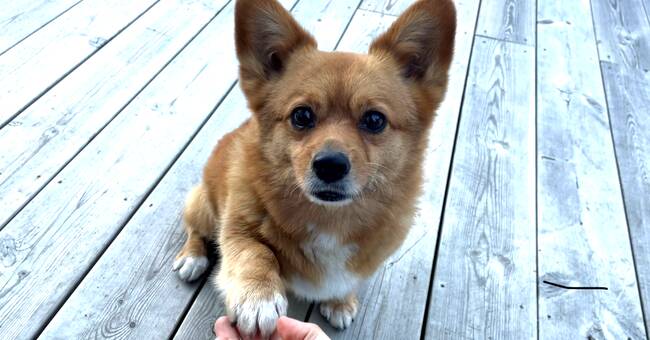The dog is a social species that has developed its bond with humans for a long time.
They have learned to take commands from people and do as we say when it hears "sit", "beautiful paw" or "stay".
But how well do dogs really understand us?
Does the dog shake its paw to get a piece of candy, or does it shake its paw because it understands that we want it to do so?
Unique Ability
Understanding someone else's intentions and acting on them has so far been a unique ability in man and a fundamental part of the "Theory of Mind" - the ability to attribute to others the mental state, feelings and desires.
Now a group of researchers at the Max Planck Institute in Germany suggests that dogs also have this ability.
In the study, which was published in Scientific reports, 51 dogs were allowed to sit in front of a person who deliberately acted clumsily and dropped sweets in various attempts to reward the dog.
In the last moment, no attempt was made to reward, but the candy was placed directly on the floor.
The only time some dogs hesitated to take the candy was in the last moment.
They stopped wagging their tails and stood still, which was interpreted as a soothing behavior.
This shows, according to the researchers, that the dogs can determine whether the candy on the floor is intended for them or not.
This by feeling the human will to give reward or not to give it.
In other words - dogs understand our intentions.
- It is important in the interaction with humans that dogs can read our intentions, for example by knowing if we are angry and if so, there will be a punishment, or if we are happy with how they behave.
Then they can get closer to us and function socially in a way that would be impossible otherwise, says Hans Temrin who is an ethologist at Stockholm University.
A confirmed theory
Reading the human mood is a behavior that many dog owners recognize, but now they have found a method to measure this.
The next step in the research is to find out how the dog does to understand us in this way.
- The study states that they do it but does not explain how they do it.
Is this a behavior that has developed in the dog or perhaps it already existed when the wolf was domesticated as a dog?
says Hans Temrin.
Play the video to see how the dogs react when the human is clumsy or denies them candy.

